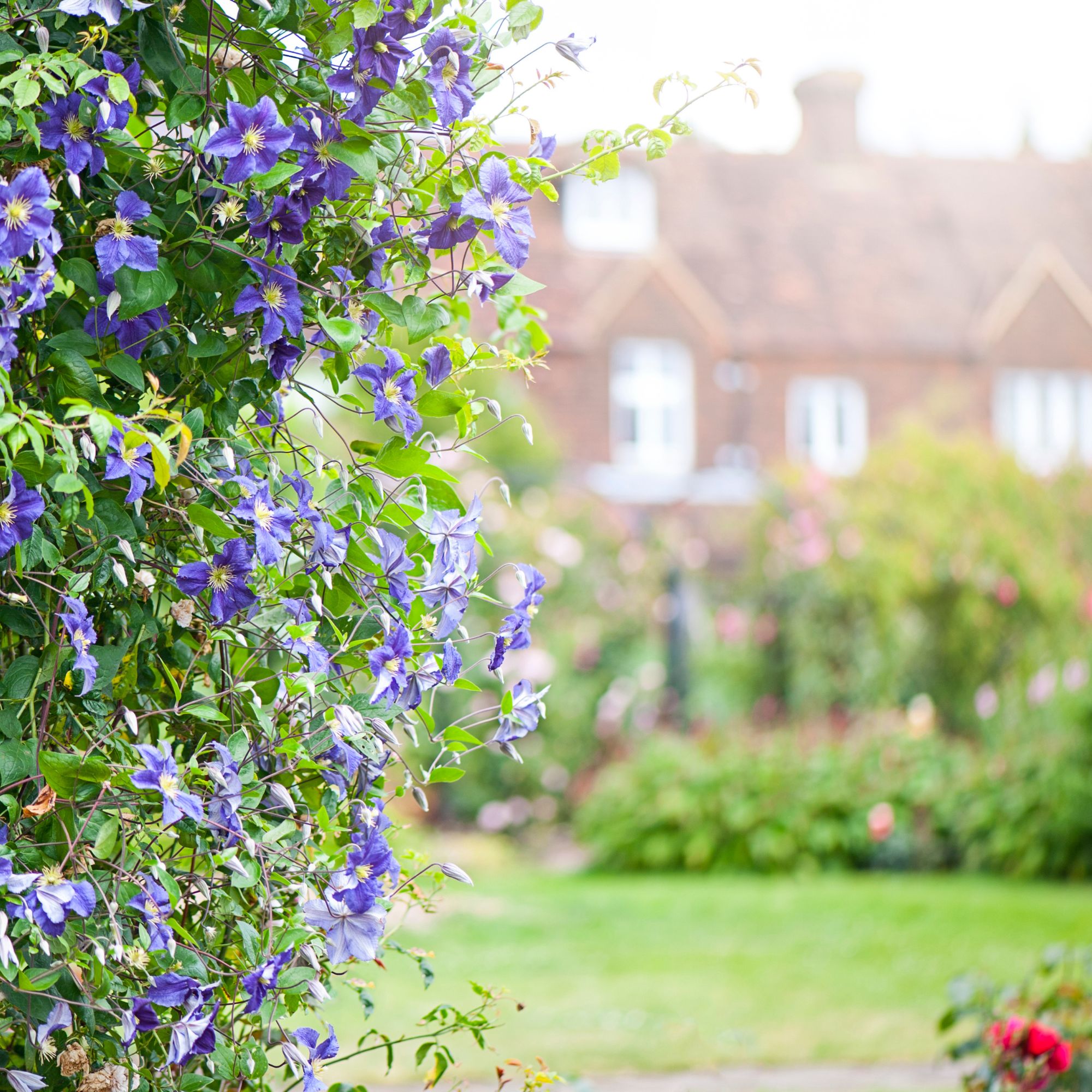
When you're sat out in your garden, you'll absolutely want to be surrounded by all things beautiful – which is why it's such a good idea to source out the best climbing plants to cover an ugly fence!
Guaranteed to brighten up even the dullest of fence panels, you can train climbing plants to cover yours with fabulous flowers and foliage. And, if you're feeling particularly savvy, you can ramp up the privacy by planting yours as an extra layer of garden screening, too.
Thankfully, if you want to use easy climbing plants to add depth and dimension to your garden (not to mention some fabulous fragrance, too), we're here to help...
The best climbing plants to cover an ugly fence
While your soil type and the direction the fence faces are obviously going to impact your choices somewhat, there are plenty of climbers out there that will work in your garden.
And, before you start to worry that you don't have the space for one, don't: this is one of those small garden landscaping ideas that suits any and all outdoor spaces, as you're working vertically rather than horizontally.
'Boring garden fences can be completely transformed into vibrant spaces bursting with colour when you add climbing plants to your garden,' says Morris Hankinson, director of Hopes Grove Nurseries.
With that in mind, then, here are some of the best climbing plants to cover an ugly fence, add some much-needed privacy, and keep things looking picture-perfect, too.
1. Wisteria
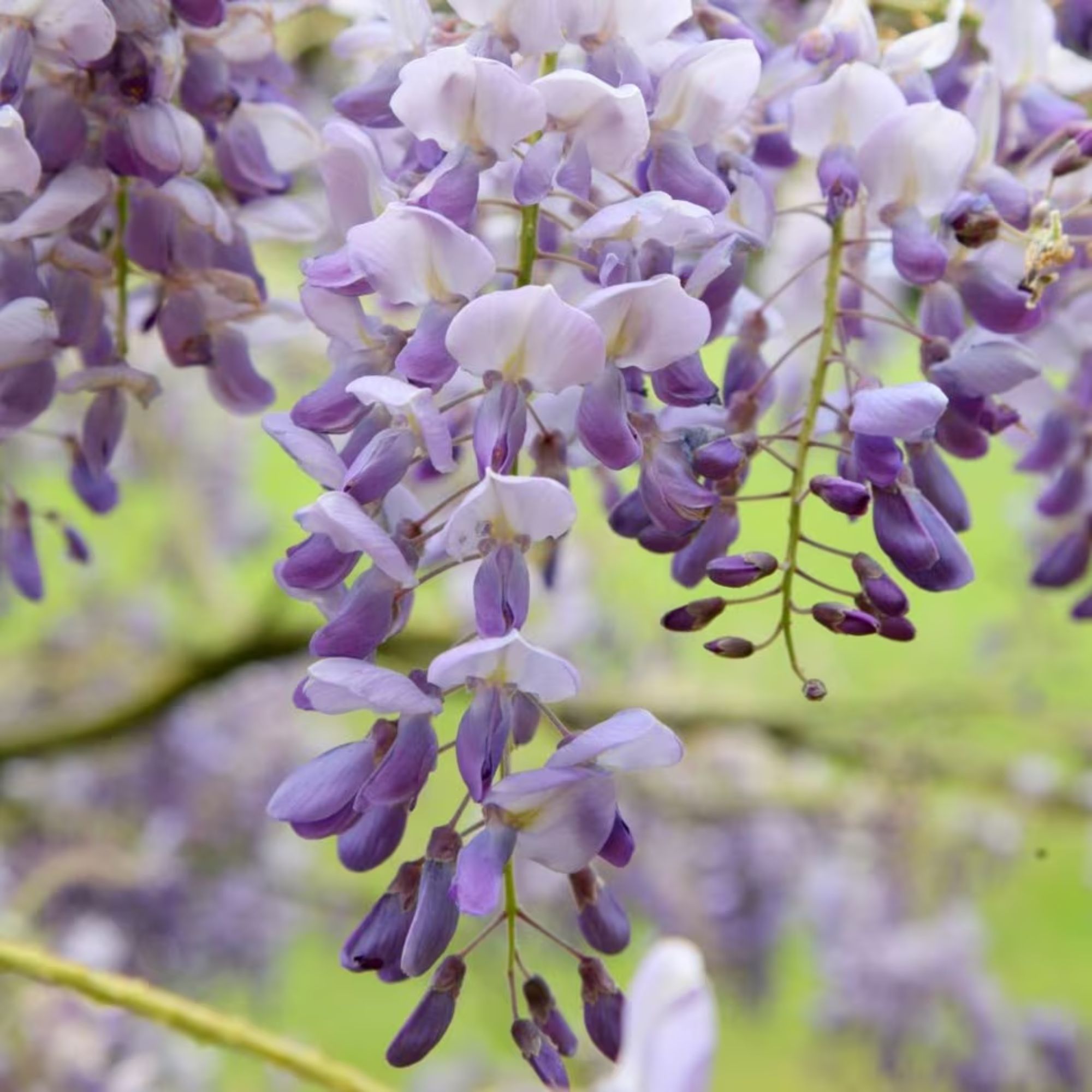
Easily one of the best climbing plants to cover an ugly fence, not to mention the most instantly recognisable, the stunning wisteria is absolutely one to consider if you're in the market for a new climber.
'Few climbing plants rival the beauty of wisteria when in full bloom with its cascades of fragrant, lavender, blue, or white flowers,' says Morris.
'There are two types of wisteria that are commonly grown in the UK – wisteria floribunda and wisteria sinensis (available from Hopes Grove Nurseries). Whichever you decide to plant, ensure you use moist, well-drained soil and position it in either a south-facing or west-facing direction.'
2. Climbing hydrangea
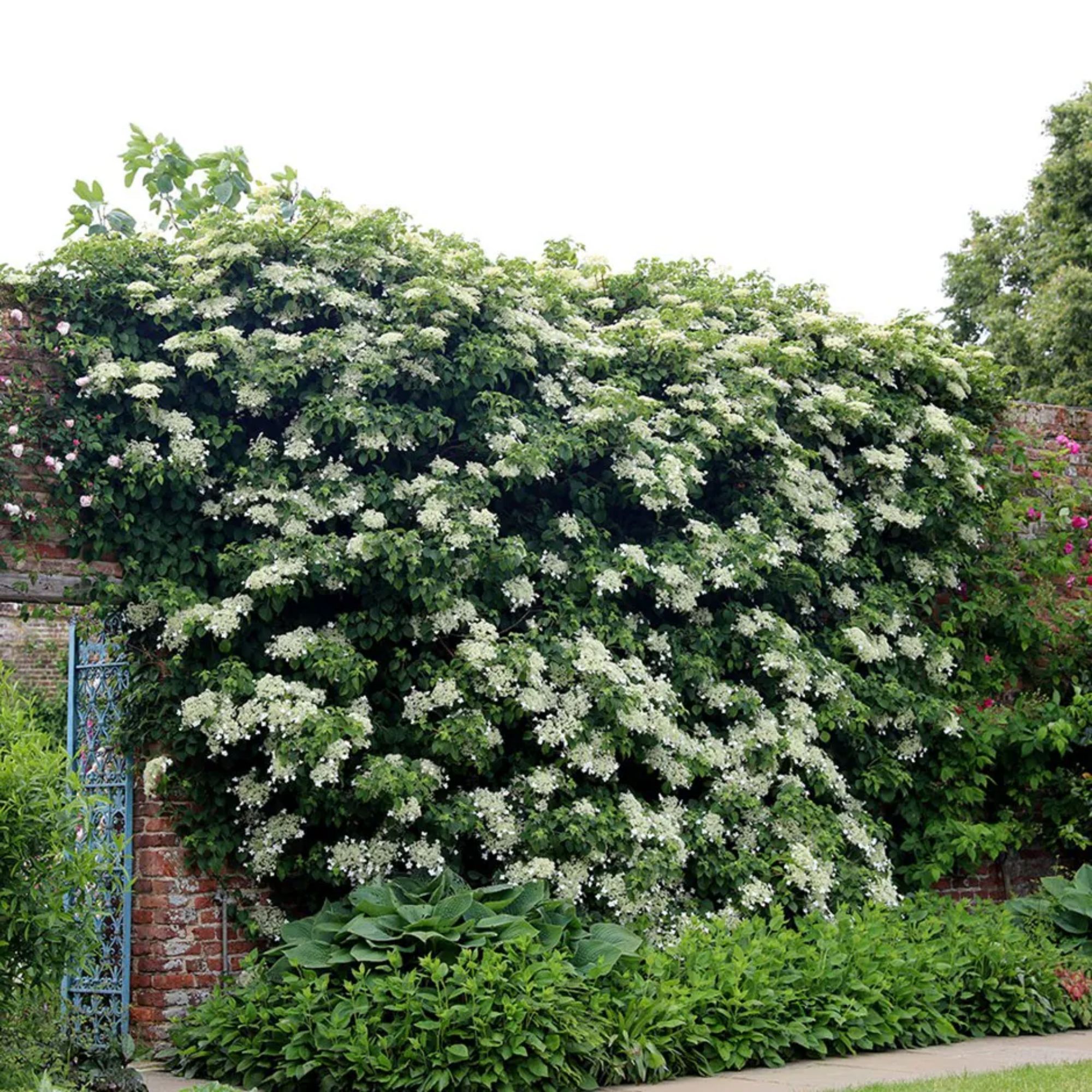
If you're looking to spruce up your ugly garden fence, look no further than the climbing hydrangea!
'Climbing hydrangeas grow well with a degree of shade, making them well-suited for east- and north-facing gardens,' say the clever people at the Royal Horticultural Society (RHS).
'They also grow well in most soils provided they are reasonably moist and fertile.'
This writer can give the not-so-humble hydrangea her shining star of approval, especially if you're in the market for a fast-growing climbing plant that will fare well in a pot; her container-bound hydrangea has scrambled almost halfway up her house in under 12 months!
3. Honeysuckle
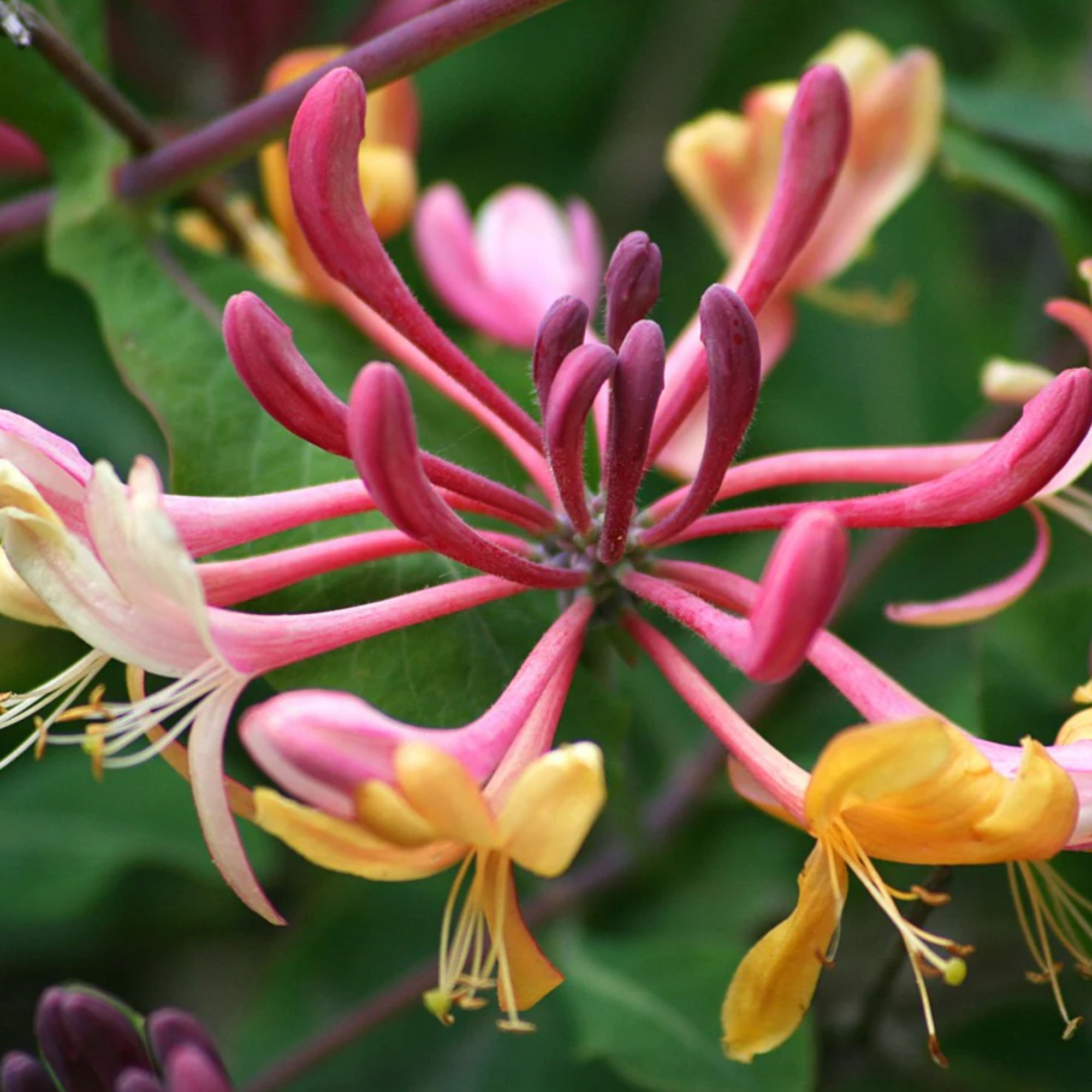
'Lonicera (honeysuckle) is another brilliant type of climbing plant if you want to hide away your ugly fences, renowned for its sweet-scented flowers and rapid growth,' promises Morris.
'Lonicera is generally unfussy when it comes to soil acidity levels, thriving in everything from an alkaline to acidic nature, and can be planted in either full sun or partial shade.'
Just be sure to take note of when to prune honeysuckle if you want to keep yours looking its very best all year round.
4. Ivy
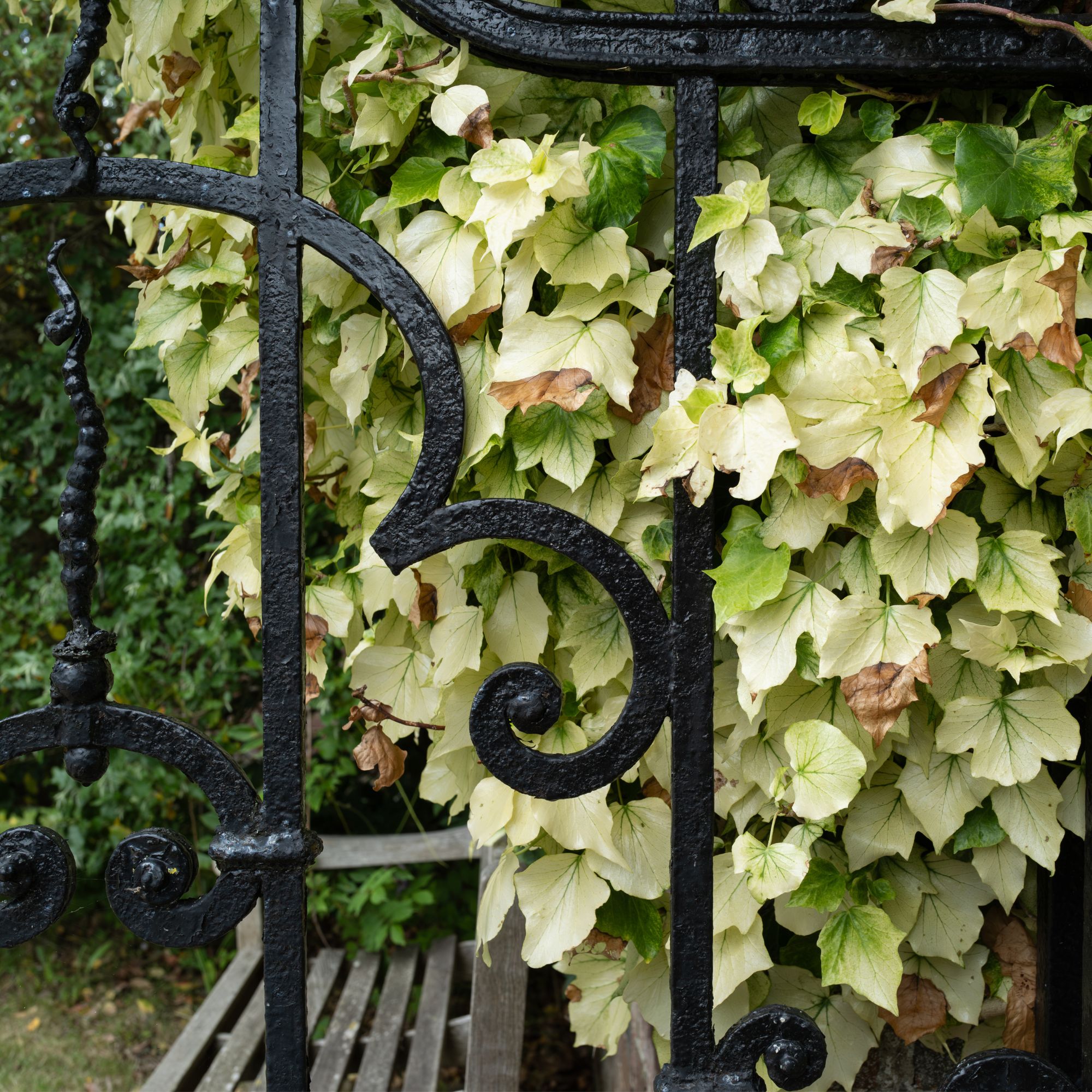
If you're looking for a living wall that a) won't blow your budget, and b) will grow incredibly quickly, you might like to consider checking out some ivy garden ideas.
'This easy evergreen often goes overlooked, but it boasts some surprisingly pretty foliage, not to mention some speedy growing power,' says Christopher O'Donoghue, one of the co-directors at Gardens Revived.
'It also flowers much later in the year than other plants, so it's brilliant for pollinators and wildlife garden ideas alike,' he adds.
Where to buy ivy:
- Crocus: a brilliant selection of ivy plants
- Thompson & Morgan: many different ivy varieties
- Amazon: a surprising abundance of ivy plants
5. Star jasmine
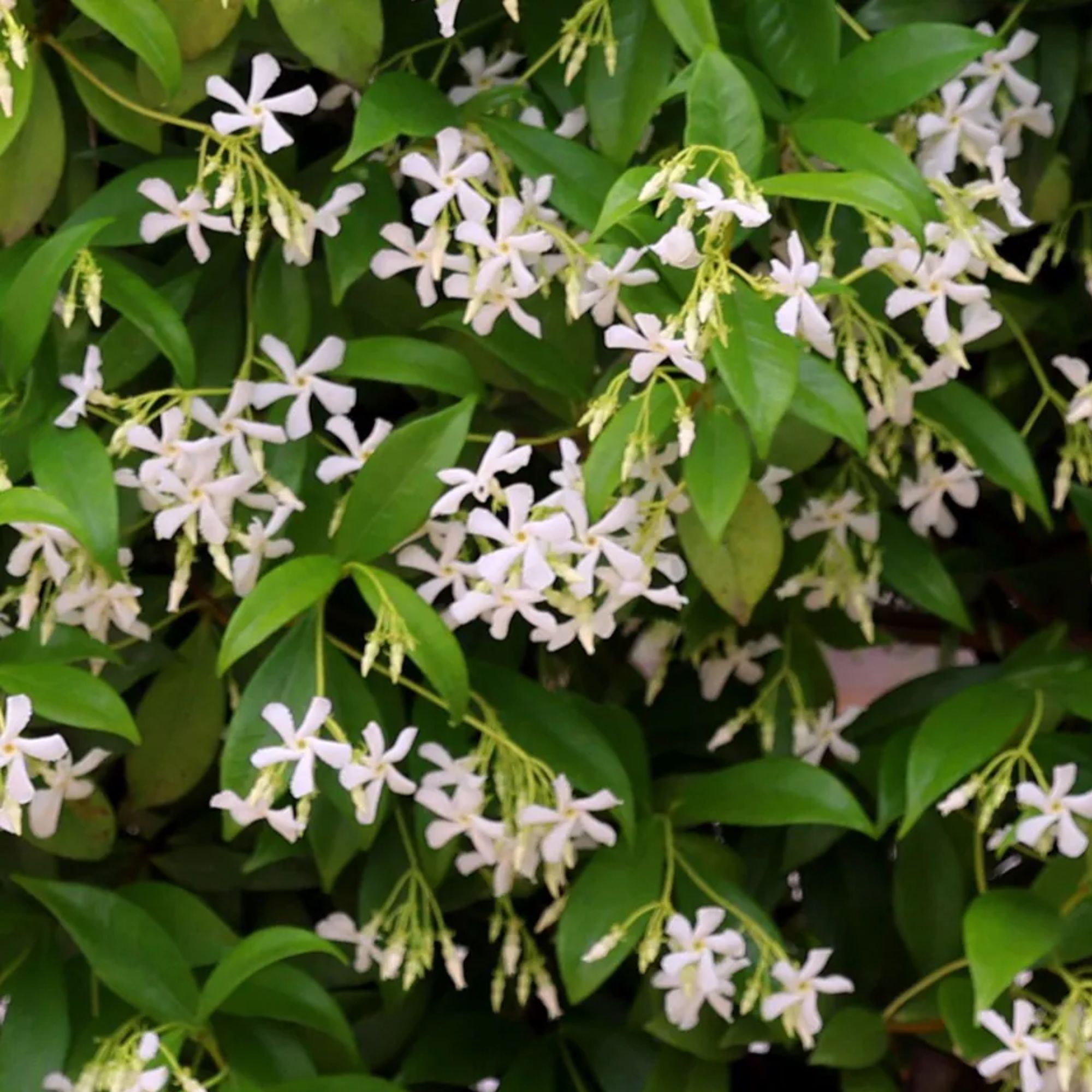
'Trachelospermum, commonly referred to as Star Jasmine, is an excellent versatile evergreen climber, producing masses of scented star-like small flowers in mid to late summer,' says Morris, promising this is one of the best climbing plants to cover an ugly fence for that very reason.
'It's a fairly hardy plant, thriving in free draining soil of moderate to high fertility, full sun or dappled shade, as long as it is sheltered from cold drying winds. You can get many types, from Trachelospermum Pink Showers (available at Hopes Grove Nurseries) to Trachelospermum Jaminoides Star Of Toscane (also available at Hopes Grove Nurseries), and fully grown, they can reach anywhere between 1 and 9 meters!'
Consider us sold.
FAQs
What is the fastest growing plant to cover a fence?
If you're looking for a very fast-growing climbing plant to cover an ugly fence, you might consider the Russian vine from Crocus (also known as the mile-a-minute plant).
'These climbers will cover your fence with a froth of pink-tinged white flowers in the summer,' says Christopher O'Donoghue with Gardens Revived. 'However, be sure to plant them with caution as they are extremely vigorous growers and have the potential to become a nuisance, especially as they tend to choke any other plants in their path.'
Climbing roses are also a good option, if you don't mind showing them a little TLC in the form of pruning and deadheading.
What is the best plant to cover a fence quickly?
Clematis, honeysuckle, and rambling roses are usually considered to be the best plants to cover a fence quickly, thanks to their uncanny ability to climb and creep so quickly.
If you're looking for something that will add some colour over the winter months, however, it's worth considering the not-so-humble ivy: these useful pollinators will keep your garden looking green all year round, thanks to their glossy foliage.
Now that you know our pick of the best climbing plants to cover an ugly fence, all that's left to do is decide which one works best for your garden aesthetic – and get to work planting it, of course.
Good luck!







